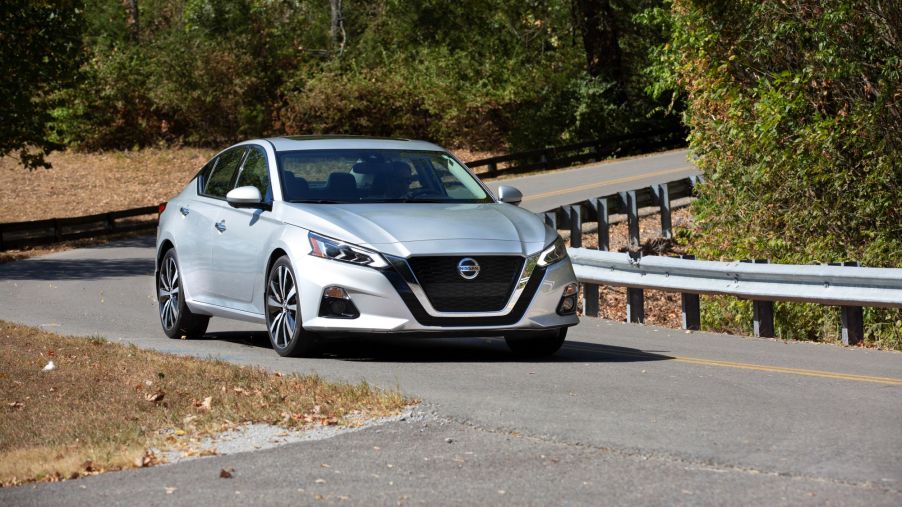
Nissan Altima Sales Suffer as Production Halt Continues
Nissan recently extended its halt in production, resulting in a decrease in Altima sales. The global pandemic has left the auto industry to deal with breaks in the supply chain, changes in consumer practices, and a worldwide semiconductor chip shortage. Analysts believe the ongoing problems could last well into 2023, leaving many automakers grappling with ways to keep the manufacturing lines running.
A global shortage of semiconductor chips is affecting automakers

In early January 2021, automakers started to feel the effects of this parts problem, leading many companies to halt production temporarily. According to CNBC, the chip shortage could create a loss of $110 billion in 2021 sales revenue for the automotive industry. The crisis is affecting many automakers across the board. Analysts believe the “production of 3.9 million vehicles will be lost this year as a result of the shortage.”
CNBC reported the unprecedented issue has resulted in the Biden administration pumping $50 billion of the new infrastructure package into the U.S. semiconductor industry. “Biden has backed proposals for tax incentives to U.S. manufacturers to make the critical parts in America to avoid shortages in the future.”
Nissan has extended its production halt of the Altima
According to Automotive News, the sale of the Nissan Altima dropped 10% during the first half of the year, selling less than 62,000 units. This is because the continuing microchip shortage forced Nissan Motor Co. to temporarily stop production of the Altima at the Canton, Mississippi plant, where they build the midsize sedan.
The production line has been at a standstill since June 4, 2021, when the factory closed for two weeks for its anticipated summer shutdown. The automaker plans to stop production in the first half of August 2021 for two days each on the Nissan Titan and Frontier lines.
GoodCarBadCar tracks the sales history of all vehicles on the market today. According to its data, the Nissan Altima was experiencing steady sales since its inception in 2005. Before the coronavirus (COVID-19) pandemic hit, the annual sales for the Altima in 2019 were 209,183 units. Last year, sales dropped drastically to only 137,988 units. For 2021, that number is sitting at a mere 61,928, with more than half the year already in the history books.
In February 2020, monthly sales of the Nissan Altima were 19,909 units. By April, as dealerships around the nation closed down, that number plummeted to only 3,906 units. This year, the Altima is experiencing monthly sales of approximately 10,000 units, which pales compared to the 23,000 unit monthly average of years past.
How the chip shortage has affected other automakers
As the chip shortage continues, auto manufacturers are struggling to meet customer demand. Time reported that Ford expects to “produce 1.1 million fewer vehicles, leading to a $2.5 billion earnings hit.”
Meanwhile, Hyundai reported a 56% increase in sales ending May 2021. It is possible the automaker had the forethought to stockpile chips before the shortage hit. However, according to Hyundai sales chief Randy Parker, the company focused on manufacturing its best-selling models, the Hyundai Elantra, Tucson, and Santa Fe. Additionally, in April 2021, some of Hyundai’s other production lines temporarily shut down to address chip shortage issues.
Tesla also appears to remain unscathed by the supply chain problems plaguing most of the automotive industry. The innovative automaker has been developing technology to eliminate its reliance on microchips. Tesla can now update the software by directly linking to a vehicle with newly-created components. This means that Tesla drivers are unaffected by the delays experienced by the consumers of other automotive brands.


